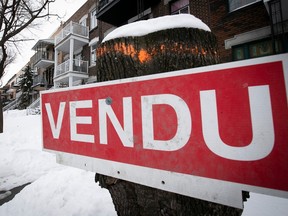Housing affordability is a key issue in the provincial election campaign in British Columbia, particularly in major centres.
Here are some statistics about housing in B.C. from the Canada Mortgage and Housing Corporation’s 2024 Rental Market Report, issued in January, and the B.C. Real Estate Association’s August 2024 report.
Average residential home price in B.C.: $938,500
Average price in greater Vancouver (2024 year to date): $1,304,438
Average price in greater Victoria (2024 year to date): $979,103
Average price in the Okanagan (2024 year to date): $748,015
Average two-bedroom purpose-built rental in Vancouver: $2,181
Average two-bedroom purpose-built rental in Victoria: $1,839
Average two-bedroom purpose-built rental in Canada: $1,359
Rental vacancy rate in Vancouver: 0.9 per cent
How much more do new renters in Vancouver pay compared with renters who have occupied their home for at least a year: 27 per cent
This report by The Canadian Press was first published Oct. 17, 2024.
